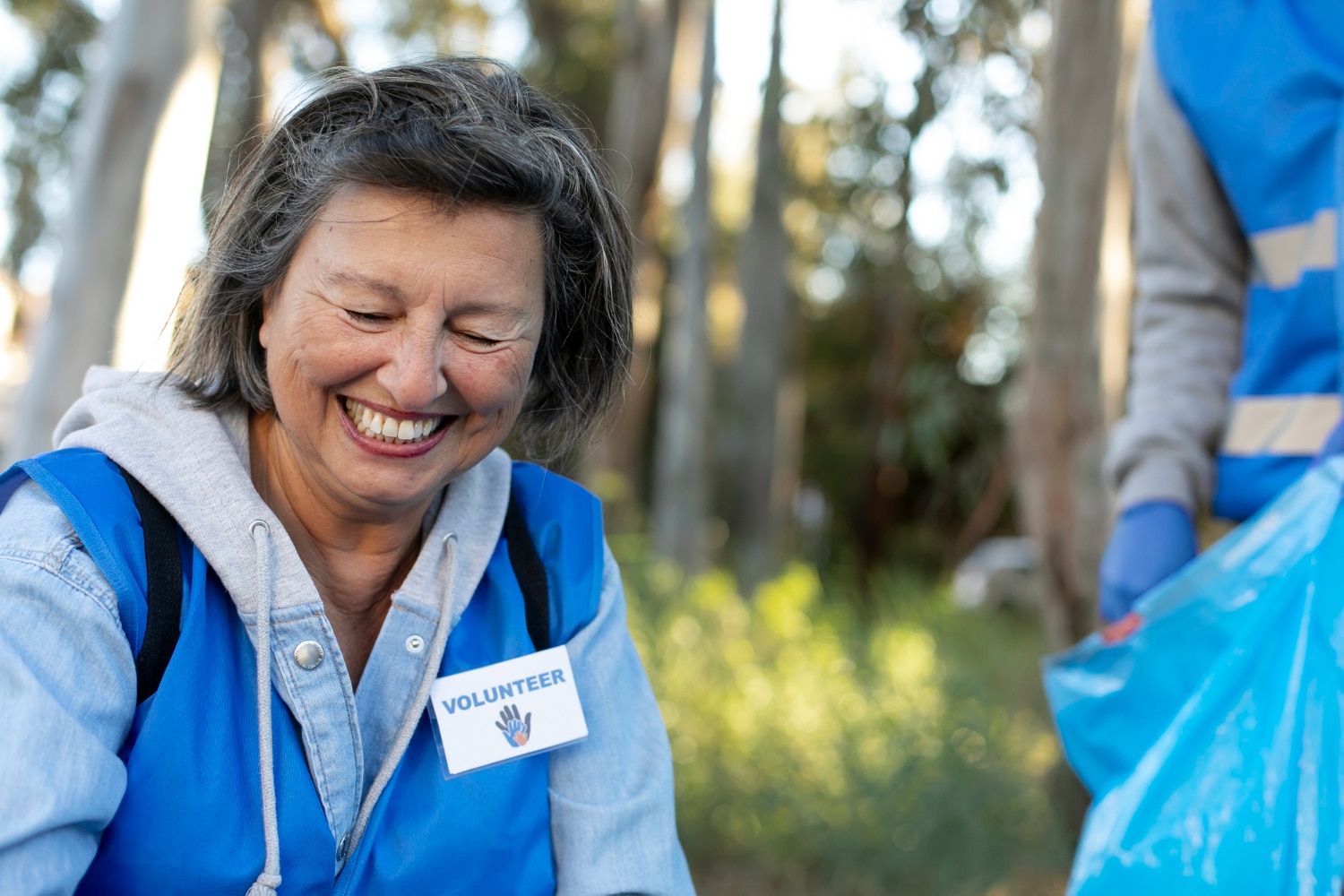Volunteer caregivers demand recognition in benefits system

Volunteer caregivers demand recognition in the benefits system to address challenges, improve support, and enhance the overall quality of care for those they assist.
Volunteer caregivers demand recognition in benefits system for their essential work. Have you ever considered how much they contribute to our lives? Let’s explore why their recognition matters.
Understanding the role of volunteer caregivers
Understanding the role of volunteer caregivers is essential. These individuals provide vital support to those in need, often without any financial gain. Their contributions impact families, communities, and society as a whole.
The Impact of Volunteer Caregivers
Volunteer caregivers fill numerous gaps in care that formal systems may not cover. They offer companionship, emotional support, and practical assistance. It’s important to recognize their role in enhancing the quality of life for individuals who may be isolated or struggling.
The Skills They Bring
Many volunteer caregivers possess unique skills that benefit those they assist:
- Empathy – Understanding the emotional needs of others.
- Communication – Effectively conveying information and feelings.
- Problem-solving – Finding creative solutions to challenges.
- Flexibility – Adapting to the varying needs of those they support.
These skills not only help in caregiving but also foster deeper connections between volunteers and recipients. The act of volunteering can also bring a sense of purpose and fulfillment to the caregivers themselves.
While their efforts are often driven by compassion, it is crucial for the community to acknowledge and provide support for volunteer caregivers. This recognition could encourage more people to step forward, ultimately enhancing the care available to those in need.
Challenges faced by volunteer caregivers

Volunteer caregivers often encounter various challenges in their responsibilities. Understanding these difficulties is crucial for improving their experience and support.
Time Constraints
One major challenge is managing the time commitment. Many volunteers juggle caregiving with other responsibilities like jobs or family. This can lead to stress and burnout. Finding a balance is often difficult, as the needs of those they care for can be demanding.
Emotional Strain
Volunteer caregivers frequently face emotional strain. Providing care can be emotionally taxing, especially when witnessing suffering or loss. The continuous exposure to these situations can lead to feelings of helplessness or anxiety.
Lack of Resources
Another obstacle is the lack of resources. Volunteers may not have access to training or support systems that can enhance their caregiving skills. This can make it harder to provide adequate care. They may feel unprepared to handle specific situations, which can add to their stress.
- The need for better training programs.
- Access to mental health support for caregivers.
- Stronger community networks to share experiences.
- Financial support for caregiving activities.
Additionally, recognition of their efforts is often minimal. Many volunteers feel undervalued, impacting their motivation and commitment. Addressing these challenges is vital for sustaining volunteer work and ensuring quality care for those in need.
Importance of formal recognition
The importance of formal recognition for volunteer caregivers cannot be overstated. Acknowledging their efforts not only validates their hard work but also encourages them to continue providing care.
Boosting Morale
When volunteer caregivers receive recognition, it boosts their morale. Feeling appreciated can enhance their commitment and motivation. Simple acknowledgments, like thank-you notes or awards, can significantly impact their spirit.
Encouraging Participation
Formal recognition can also encourage more individuals to become involved in volunteering. When potential volunteers see that caregivers are honored for their contributions, they may feel inspired to join and make a difference themselves.
- Public awards for outstanding volunteers.
- Showcasing their stories on community platforms.
- Hosting events to celebrate their contributions.
- Providing certificates or badges for their achievements.
Moreover, recognition can help enhance the support systems for caregivers. By highlighting their contributions, communities can rally behind their needs, ensuring that they have access to resources and training. It helps create a culture that values caregiving, making it more sustainable and effective.
In addition to individual benefits, recognizing volunteer caregivers strengthens communities. This acknowledgment fosters a sense of belonging and appreciation, leading to a more engaged and supportive environment.
Benefits system improvements needed
Addressing the needs of volunteer caregivers through benefits system improvements is crucial. Many caregivers work tirelessly, often without proper support from the systems designed to aid them. Enhancing these systems can help stabilize the caregiving framework.
Current Limitations
Many volunteer caregivers face challenges due to the current system’s limitations. These may include lack of financial support, inadequate access to training, and insufficient resources to manage their caregiving tasks effectively.
Proposed Improvements
Implementing several key improvements could greatly benefit volunteer caregivers:
- Financial incentives for caregivers to recognize their efforts.
- Offering training programs to enhance their skills, ensuring they feel prepared for the tasks ahead.
- Access to mental health resources to support their emotional well-being.
- Creating a streamlined process for caregivers to access necessary tools and resources.
Such adjustments will not only uplift the caregivers but also improve the quality of care recipients receive. Making these changes will create a more robust support system that values and acknowledges the critical role of volunteer caregivers.
Furthermore, strengthening networks among caregivers can encourage collaboration and shared learning experiences. This would foster a sense of community and support, enhancing their overall experience.
Personal stories from caregivers
Personal stories from caregivers highlight the profound impact of their work. These narratives illustrate the challenges they face and the rewards they experience while providing care. Through their stories, we can gain insight into their world.
Heartwarming Experiences
Many caregivers find joy in the connections they build with those they assist. A simple smile or a moment of laughter can brighten their day. For example, one caregiver shared how reading a beloved book brought comfort to an elderly person, sparking delightful conversations.
Facing Difficult Times
Caring for someone can be emotional and taxing. Caregivers often confront tough situations. One shared a story about handling a medical emergency, emphasizing the need for quick thinking and calmness. Such experiences test their abilities and fuel personal growth.
- Building relationships through shared interests.
- Learning patience in difficult moments.
- Gaining valuable life lessons from those they care for.
These stories not only show the realities of being a caregiver but also the resilience and dedication they demonstrate. They remind us of the human aspect of caregiving and the deep bonds formed along the way.
Listening to personal stories can help the community understand the importance of supporting volunteer caregivers. The empathy gained through these narratives fosters greater appreciation for their roles.
In conclusion, recognizing the contributions of volunteer caregivers is essential for building a supportive community. By addressing challenges and improving the benefits system, we can ensure these dedicated individuals feel valued and appreciated.
Their personal stories remind us of the profound impact they have on our lives and the importance of fostering connections.
Together, we can create a culture that celebrates caregiving and enhances the experiences of both caregivers and those they care for.
FAQ – Frequently Asked Questions about Volunteer Caregivers
Why is recognition important for volunteer caregivers?
Recognition boosts their morale, encourages continued support, and helps build a community that values caregiving.
What challenges do volunteer caregivers face?
They often experience time constraints, emotional strain, and a lack of resources to effectively perform their duties.
How can communities support volunteer caregivers?
By improving the benefits system, offering training programs, and providing resources that make caregiving more manageable.
What impact do personal stories from caregivers have?
These stories provide insight into their experiences, helping others understand the significance of their contributions and the emotional aspects of caregiving.






